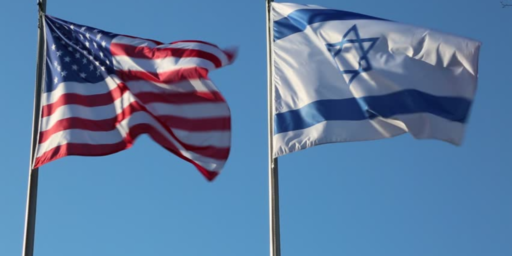WAR’S NEW FACE
Daniel Pipes argues rather persuasively that most of what we know about war has been turned upside down, at least when Western states fight non-Western ones: The enemy is now a regime rather than a people; military victory is virtually certain; we try to keep casualties down on the other side as well as our own; and instead of plundering the treasures of the vanquished, we rebuild them.
It’s a well-written piece, with which I have only two quibbles: First, what Pipes generalizes to the West I would particularize to the United States. No other country in the world has anywhere close to he ability to dominate a conflict in the manner we do. While modern states will almost certainly beat primitive ones in total war, only the US has the C4ISR (command, control, communications, computers, intelligence, surveillance, and reconnaisance) capabilities and sufficient quantities of brilliant weapons to win so overwhelmingly yet surgically. Second, Pipes draws parallels to Israel’s handling of the Palestinians. I would argue it’s not even comparable to the US wars in Afghanistan and Iraq. The Sharon regime been rather cavalier about civilian deaths and lacks the political will and military capability to operate in the pinprick fashion the US has displayed of late.
(Hat tip: RealClear Politics)






Plus one more caveat: only the United States doesn’t attempt to keep another country tied to and dependent on itself. Do you honestly believe any other ‘western’ state, perhaps excepting the UK, wouldn’t immediately try to make a ‘conquered’ state a client-state?
As a history ‘buff’ (hate that word), I am amazed afresh every day by this war. That we tried *not* to destroy infrastructure, that we tried to avoid many civilian institutions even when it made miltary sense to hit them, that killing Iraqi soldiers was not really a goal. Other American commanders in previous wars, while not enjoying their task, understood that their job was to destroy stuff and kill as many of the enemy as they could. 20 years ago I would have laughed at the idea of someone trying to fight a ‘humane’ war. Now I am so proud of our forces and my country that I cannot express it.
—